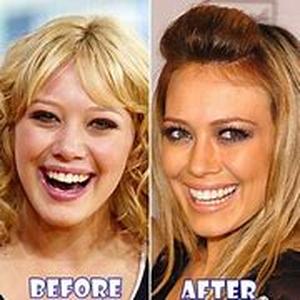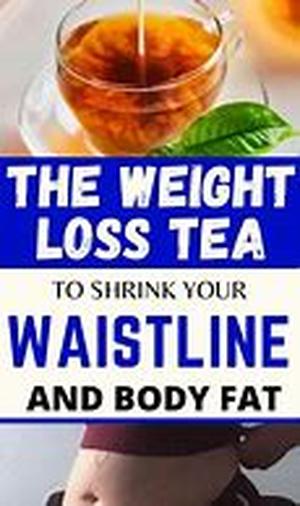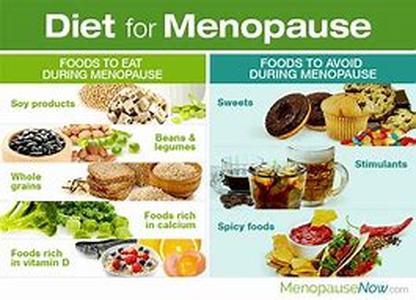
PbWhat Is Cholesterol?bppCholesterol Is A Type Of Fat (lipid) Made By The Body. About 80 Of Cholesterol Is Made By The Body, The Other 20 Comes From The Diet. Cholesterol Is A Building Block For Cell Membranes. Our Body Uses Cholesterol To Produce Many Hormones (e.g., Progesterone, Estrogen, Testosterone), Vitamin D, And The Bile Acids That Help To Digest Fat.ppMany Foods Contain Cholesterol And High Intake Of These Foods Can Increase The Level Of Cholesterol In The Blood. Having Too Much Cholesterol In The Blood Is Not A Disease In Itself, But High Cholesterol (hypercholesterolemia) Can Cause The Formation And Accumulation Of Plaque Deposits In The Arteries. Plaque Is Composed Of Cholesterol, Other Fatty Substances, Fibrous Tissue, And Calcium. When It Builds Up In The Arteries, It Results In The Hardening And Narrowing Of The Arteries (atherosclerosis) In The Major Vascular Systems. PpNarrowing Of The Arteries Around The Heart (coronary Heart Disease) Can Prevent The Heart From Getting As Much Oxygen-rich Blood As It Needs, Increasing The Risk Of A Heart Attack. Decreased Blood Flow To The Brain Can Cause A Stroke, And Less Blood Flowing To The Lower Limbs May Result In Exercise-related Pain Or Even Gangrene.ppHaving A High Cholesterol Level Does Not Cause Symptoms And Does Not Make You Feel Sick. If There Is A Huge Excess, Some People Develop Soft, Yellowish Skin Growths Called Xanthomas, Usually In The Area Near The Eyes. Most People Find Out They Have High Cholesterol When They Have Their Blood Cholesterol Measured As Part Of A Medical Check-up.ppbTypes Of Cholesterol BppCholesterol Is Not Soluble In Water And Doesn't Mix Easily With Blood. In Order To Be Able To Travel In The Bloodstream, The Cholesterol Made In The Liver Is Combined With Protein And Other Substances. This Cholesterol-protein Package Is Called A Lipoprotein. Lipoprotein Then Carries The Cholesterol Through The Bloodstream. PpLipoproteins Can Be High Density (HDL), Low Density (LDL) Or Very Low Density (VLDL), Depending On How Much Protein There Is In Relation To Fat.ppbLDL (low Density Lipoprotein)bppLow-density Lipoprotein (LDL) Is Called The "bad" Cholesterol. About 70 Of Cholesterol Is Transported As LDL. This Is Mostly Fat And Not Much Protein. LDL Causes Cholesterol To Be Deposited In The Arteries. High Levels Of LDL Are Associated With An Increased Risk Of Coronary Heart Disease.ppbHDL (high Density Lipoprotein)bppHigh-density Lipoprotein (HDL) Is Called The "good" Cholesterol. It Carries Cholesterol From The Body's Tissues Back To The Liver. About 20 Of Cholesterol Is Transported As HDL, Which Is Mostly Protein And Not Much Fat. HDL Cholesterol May Help Protect Against Atherosclerosis By Preventing Cholesterol From Depositing On Arterial Walls As It Circulates In The Bloodstream.ppbRisks FactorsbppThere Are Several Factors That May Contribute To High Cholesterol Level In The Blood:pullibGenetic Predisposition. BPeople Are At A Higher Risk Of High Cholesterol If They Have A Direct Male Relative Aged Under 55 Or Female Relative Aged Under 65 Affected By Coronary Heart Disease.lilibDiet High In Saturated Fat.b Saturated Fat And Cholesterol Come From Animal Foods Such As Beef, Pork, Veal, Milk, Eggs, Butter, And Cheese.lilibSedentary Lifestyleb. Lack Of Exercise May Increase LDL Cholesterol And Decrease HDL Cholesterol. Regular Physical Activity May Lower Triglycerides And Raise HDL Cholesterol Levels.lilibOverweightb. Excess Weight May Modestly Increase Your LDL (bad) Cholesterol Level. LilibAge And Sex.b Cholesterol Generally Rises Slightly With Increasing Age, And Men Are More Likely To Be Affected Than Women.lilibDrinking Alcohol Excessivelyb. Drinking Too Much Alcohol Can Damage The Liver And Heart Muscle.lilibDiabetesb. Diabetes Is A Significant Risk Factor For All Cardiovascular Diseases.lilibSmoking.b This Applies Not Only If You Smoke, But Also If You Live Or Work Every Day With People Who Smoke.liulpbTreatmentbppLifestyle Changes Such As Changing Diet, Managing Weight, Increasing Exercise, And Quitting Smoking Are The First Steps To Improving Blood Levels Of Cholesterol. If These Changes Are Not Enough, Your Physician Might Recommend Cholesterol-lowering Prescription Medication. PpMedications To Improve Blood Cholesterol Levels Include:pullibStatinsb - Are The Most Widely Used, And Also The Most Powerful Medications For Lowering LDL Cholesterol. They Work By Reducing The Production Of Cholesterol In The Liver. Statins Not Only Lower Blood LDL Cholesterol Levels, They Also Modestly Increase HDL Cholesterol Levels And Modestly Decrease Triglyceride Levels. These Medications Are Usually Well Tolerated, Have Few Side Effects, And Are Taken Once Or Twice A Day. Currently, Six Statin Drugs Are Available: Atorvastatin (Lipitor), Fluvastatin (Lescol), Lovastatin (Mevacor), Pravastatin (Pravachol), Simvastatin (Zocor), And Rosuvastatin (Crestor).lilibBile Acid Sequestrantsb - These Drugs Bind With Cholesterol-containing Bile Acids In The Intestines And Are Then Eliminated In The Stool. They Typically Lower Cholesterol By 10 To 20. Small Doses Of Sequestrants Can Produce Useful Reductions In LDL Cholesterol. Cholestyramine (Questran, Questran Light), Colestipol (Colestid), And Colesevelam (WelChol) Are The 3 Main Bile Acid Sequestrants Currently Available. Bile Acid Resins Are Mainly Used In Young Adults With Hypercholesterolemia Or In Combination With Another Cholesterol-lowering Medication.lilibCholesterol Absorption Inhibitorsb - Are A New Class Of Cholesterol Lowering Agents Approved In 2002. Drugs In This Class Work To Lower Blood Cholesterol Levels By Absorbing Excess Cholesterol In The Intestines And Thus Blocking Cholesterol's Entry Into The Bloodstream. Ezetimibe (Zetia) Is The First Drug In This Class. Ezetimibe Reduces LDL Cholesterol By 18-20. It Is Probably Most Useful In People Who Cannot Take Statins Or As An Additional Drug For People Who Take Statins But Who Notice Side Effects When The Statin Dose Is Increased. Adding Ezetimibe To A Statin Is Equivalent To Doubling Or Tripling The Statin Dose.lilibNicotinic Acid Or Niacin B- This Water-soluble B Vitamin Improves All Lipoproteins When Given In Doses Well Above The Vitamin Requirement. Nicotinic Acid Lowers Total Cholesterol, LDL Cholesterol, And Triglyceride Levels, While Raising HDL Cholesterol Levels. Niacin Also Widens Blood Vessels, Making Flushing And Hot Flashes Frequent Side Effects.lilibFibratesb - These Cholesterol-lowering Drugs Are Primarily Effective In Lowering Triglycerides And, To A Lesser Extent, Increasing HDL Cholesterol Levels. These Drugs Include Fenofibrate (Tricor) And Gemfibrozil (Lopid).liul





